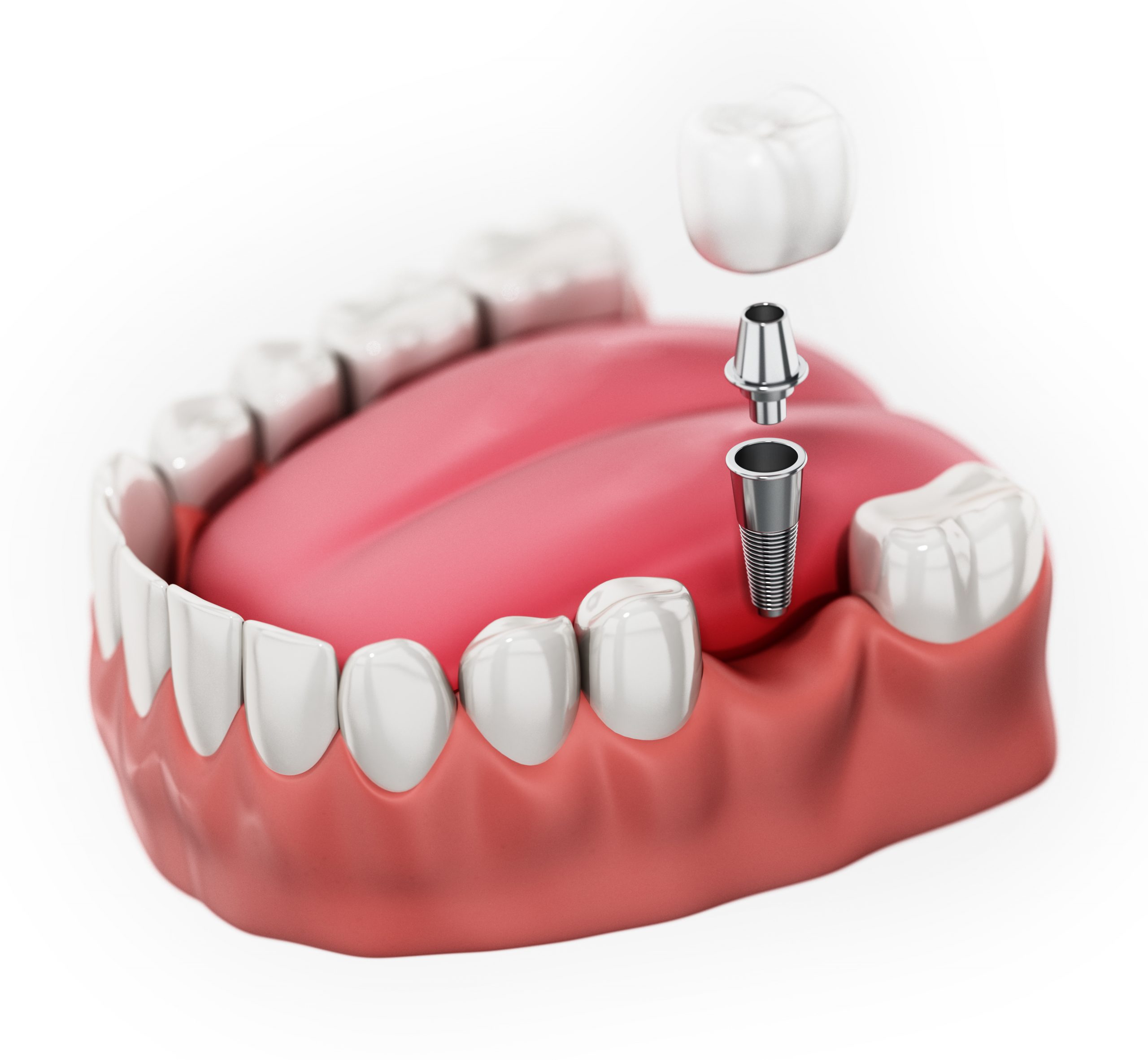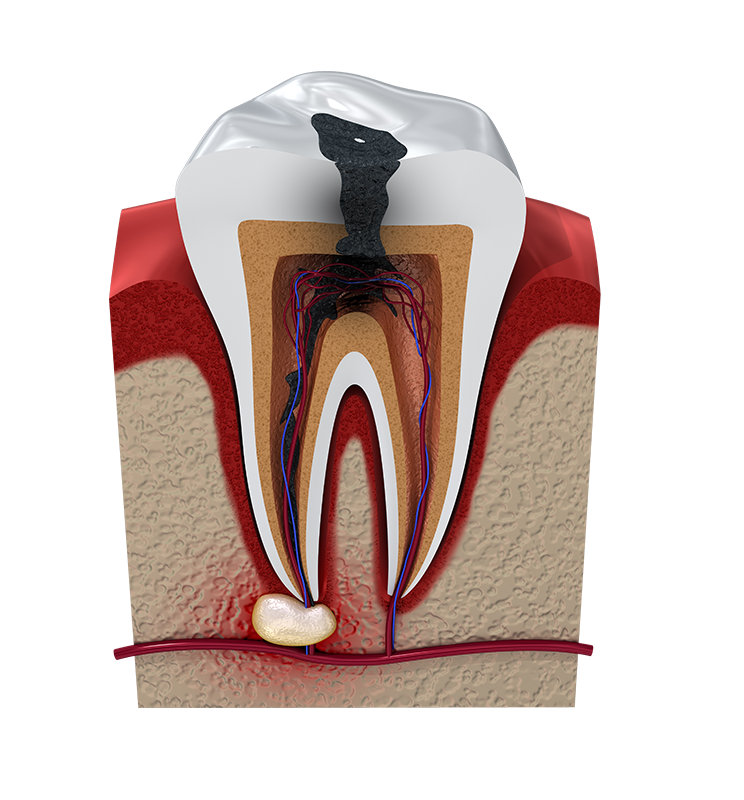
DENTAL PROCEDURES
DENTAL IMPLANTS
Dental implants are artificial teeth that are placed permanently into bone to replace lost or missing natural teeth. In general, they are made of titanium and other bio-inert materials that are compatible with the human body. Implants can be used to replace a single tooth, several teeth, or to support the replacement of an entire jaw full of teeth. A single tooth implant is a free-standing unit. It does not affect the adjacent teeth; a distinct advantage over a natural tooth-supported bridge where the natural teeth on either side of the space where a tooth/teeth are missing must be trimmed down to act as supports for the bridge. An implant-supported bridge is used when one or more teeth are missing. It usually requires at least two implants but can allow for restoration of three or more teeth. If you are missing all of your teeth, an implant supported bridge or denture can be used to replace the missing teeth. Because the dental implants integrate with the jawbone, an implant supported denture tends to be comfortable and stable, allowing you to bite and chew naturally. Implants are a popular and effective way to replace missing teeth and have been one of the biggest advances in dentistry in the last 40 years. Over 5.5 million implants are placed annually in the United States. Dental implants are the ‘Gold’ standard for replacing missing teeth and many patients can hardly tell them apart from natural teeth.

ROOT CANAL THERAPY
Root canals are needed when a dental infection or tooth decay reaches the pulp (the soft tissue inside the tooth that contains blood vessels and nerves) of the tooth. The tooth has become so infected that it cannot heal and the source of the infection must be removed through root canal (endodontic) treatment. Years ago, diseased or injured teeth were frequently extracted, but today, the tooth can often be saved through root canal treatment. Once a root canal procedure is complete, the tooth will then need to be restored. There are several options available to restore the tooth. A crown is the most common restoration used to protect the tooth from breaking in the future. Sometimes a tooth may need added retention and strength so a post/core build up may need to be placed before a crown is fabricated. With proper care, an endodontically treated tooth will function normally for years to come.

WISDOM TEETH
Wisdom teeth, or third molars, are the last teeth to erupt in your mouth. Most people have four wisdom teeth that usually erupt through the gums in their late teens or early twenties. Wisdom teeth that are healthy and properly positioned can be an asset. Commonly, however, wisdom teeth are misaligned, erupt partially or remain trapped in the jawbone under the gums because there is insufficient room for them to erupt. Not all wisdom teeth need to be removed but it does become necessary when a patient develops infection caused by partial eruption of the tooth through the gum; damage to or crowding of adjacent teeth; or the formation of a fluid-filled cyst on or near an impacted tooth destroying surrounding bone. Regular checkups are important to allow us to track the progress and condition of your wisdom teeth and to determine whether or not they should be removed.


Get on the Road to a Great Smile!
Call: 203-248-0072
Email: contact@hamdendentistry.com
Visit: 2559 Dixwell Avenue, Hamden, CT

Office Hours
Monday through Thursday
8:30 AM to 5:30 PM
Friday
8:30 AM to 12:30 PM